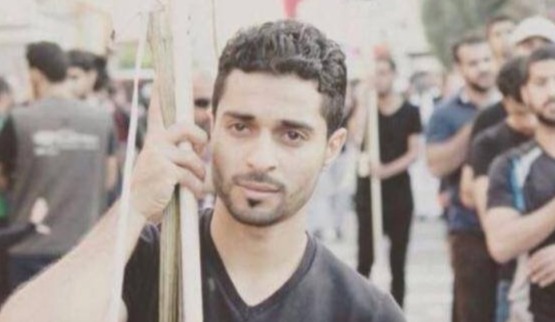Husain Ebrahim Marzooq is a 28-year-old Bahraini accountant who was sentenced to death and stripped of his nationality after an unfair trial. The authorities arbitrarily detained him and subjected him to torture and ill-treatment in order to coerce a confession. His sentence was recently upheld by the Court of Cassation, Bahrain’s highest court, and he is now at imminent risk of execution.
On 31 June 2016, plainclothes officers and members of the Ministry of Interior’s Criminal Investigation Directorate (CID) raided Husain’s house without a search warrant. Concealing their identities, the officers went into Husain’s room on the second floor and confiscated his belongings, including clothes and a laptop. Husain was not at home, and the authorities raided several other houses nearby looking for him. For four consecutive days, members of the CID went back to search Husain’s house without a warrant.
On 10 July 2016, around 1:00pm, plainclothes officers attached to the Ministry of Interior (MoI) arrested Husain at his friend’s house in Hamad Town. Two hours after his arrest, he was seen shackled at Al Qalaa Clinic, barely able to walk. During interrogations at the CID, officers subjected him to electric shock and threatened him in order to coerce a confession. He eventually confessed and was charged with multiple offenses, including participating in a bombing that killed a teacher, possession of explosives and weapons, communication and conspiracy with a foreign country, and training with the Iranian Revolutionary Guards.
There are conflicting versions of the events for which Husain was charged. The Ministry of Interior claims that there was a bombing near Husain’s house that killed Fakhriya Muslim, the deceased teacher, as she was driving by. However, witnesses who went to the scene later reported bullet holes in the car’s windshield and the body of the victim.
On 19 June 2017, Husain was convicted along with nine other men and sentenced to death. He was also stripped of his nationality. The Court of Appeals upheld his sentence on 22 November 2017, and the Court of Cassation in turn confirmed the decision on 26 February 2018, rendering his verdict final.
Bahrain’s actions violate both international and domestic law, including its own Constitution. Because it was conducted without a warrant, Husain’s initial arrest is in violation of Article 9 (1) of the International Covenant on Civil and Political Rights (ICCPR) and multiple Bahraini laws prohibiting arbitrary arrests and detentions, including Article 19 (a) of the Bahraini Constitution. Further, by subjecting Husain to torture, Bahrain has failed to comply with its obligations under Article 7 of the ICCPR and the Covenant against Torture and Other Cruel, Inhuman or Degrading Treatment or Punishment (CAT), as well as Article 19 (d) of the Bahraini Constitution.
ADHRB calls upon Bahrain to nullify Husain’s conviction based on a confession extracted under torture and adequately address its recurrent failures to comply with domestic and international law. We also urge the Bahraini authorities to adopt the necessary measures to ensure that subsequent trials are conducted in line with due process and that claims of torture are fully investigated. We finally call upon Bahrain to reestablish its moratorium on the death penalty.





